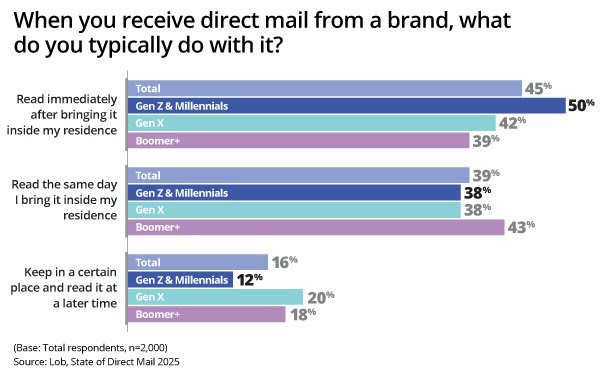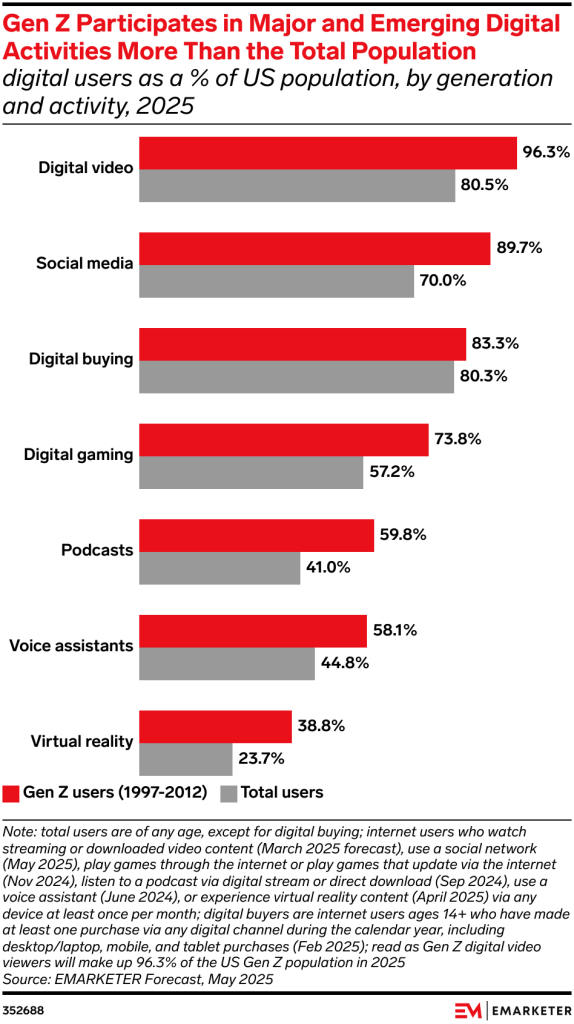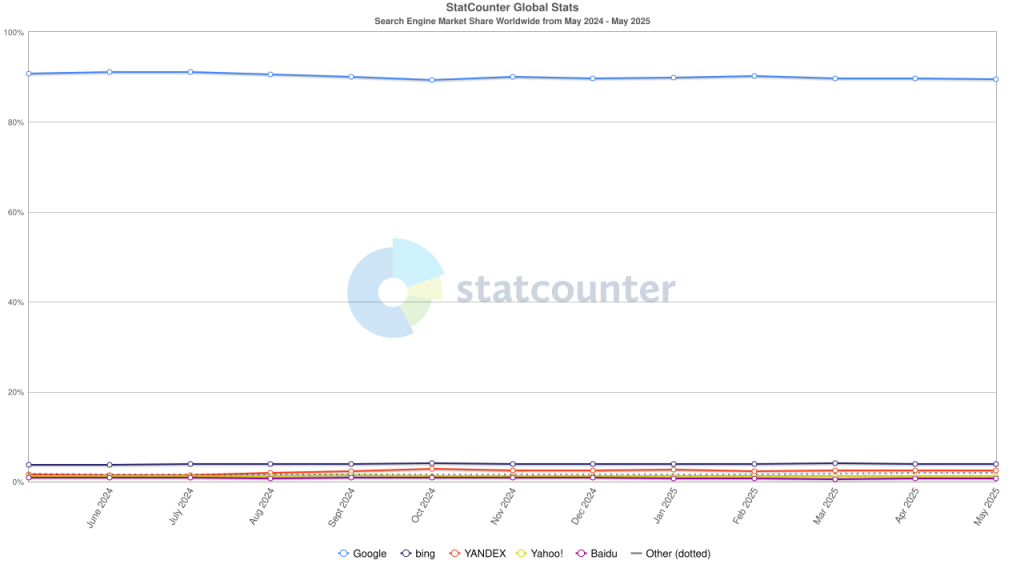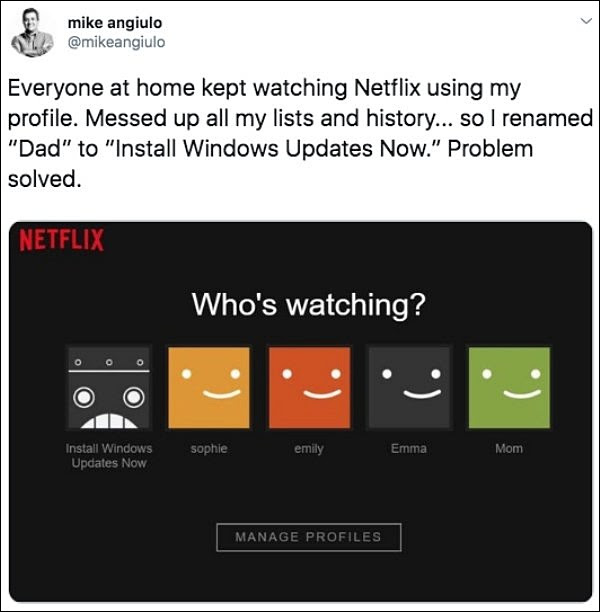Good Monday Morning
A housekeeping note: starting with this issue, Spotlight will publish two issues per month. While our audience includes digital marketers, this new schedule lets us explore broader trends that affect everyone. I’m excited about the change!
Today’s Spotlight is 1,187 words, about 5 minutes to read.
3 Headlines to Know Now
Microsoft Extends Free Windows 10 Updates
Microsoft will let users keep getting security updates for Windows 10 into 2026 if they sign up for Windows Backup or trade in Microsoft Rewards points. Even “free” security comes with strings attached.
Facebook Wants AI Access to Your Camera Roll, Even For Photos You Have Not Shared
Meta is testing a feature that scans private photos to suggest AI edits, raising fresh questions about how much of your personal data you want feeding any company’s AI engines. That’s a question we tackle today in the Spotlight below.
Amazon Robots Are Taking Over Warehouses While Disabled Workers Say AI Denies Them Fair Treatment
As Amazon nears having more robots than humans in its distribution facilities, disabled corporate employees allege the company’s AI is blocking accommodation requests and silencing organizing efforts.
GenZ and Millennials Rediscover Direct Mail While Email Stays in the Mix
By The Numbers

George’s Data Take
Boomers and Gen X grew up saturated with direct mail and broadcast ads, leaving them burned out and eager for digital’s novelty when it arrived.
For younger generations, digital overload has made today’s less frequent, higher-quality direct mail feel unique and worth attention, especially as brands invest more in direct mail efforts to justify its higher cost compared to digital. It’s no longer competing with letters, bills, and reminders in physical mailboxes.
That’s how “junk mail” became premium.
Hackers Crack McDonald’s AI Hiring Chatbot With Password “123456”
Running Your Business
A weak password and sloppy security at Paradox.ai exposed millions of McDonald’s job applicants’ personal data to hackers who needed nothing more than “123456” to break in.
Silver Beacon Behind The Scenes
Know your data risks, understand your responsibilities, and never forget that in the end, someone will be accountable. Act fast if that’s you. Paradox’s Chief Legal Officer jumped in front of the story and declared, “We own this.”
Odd Ways Your Data is Captured & Sold
When Personal Data Gets Sold in Unexpected Ways
We already know social media sites, credit card companies, grocery stores, and ecommerce platforms share our data. But did you know that 75 percent of the most visited websites in the US and Europe still share personal information with third parties even after users explicitly withdraw consent?
That unsettling finding comes from Privado.ai’s 2024 State of Website Privacy Report. The report found 76 percent of top US sites ignore “do not sell” signals and 74 percent of EU sites don’t honor opt-in requirements.
Beyond the usual culprits, your data is being sold in some unusual ways.
Browser Extensions as hidden trackers
Browser extensions often collect and sell browsing data to third parties, though practices vary widely. One of the most famous examples was a security software tool from Avast that sold user browsing data. The software was exposed in 2020, but it took years for the FTC to settle with the company for a $16.5 million fine last year. Those whose browser histories were sold got nothing.
Not all browser extensions commit fraud, but you should at least look at the privacy policies before allowing something access to everything you do online.
Airline Flight Records Sold to Homeland Security
Major U.S. carriers like Delta and United, through data broker ARC, sold passenger’s names, itineraries and payment details to Customs and Border Protection, part of Homeland Security.
The airline industry apparently knew that passengers would hate this, so it included specific contract language to prevent CBP from identifying them as the source of the name, financial, and itinerary data. The cost for the first two years was just over $17,000. We know all this because of a FOIA request.
Ad-tech Turned into Intel
It’s not just CBP. The Pentagon and U.S. Intelligence agencies now use commercial ad platforms to locate individuals, including high-profile targets like Vladimir Putin! Here’s how:
Every iPhone and Android has an “anonymous” advertising ID number because earlier tracking systems contained names, email addresses, and other identifying information. Advertising exchanges compile everything you do online under your anonymous advertising ID number. Your location is tied into that ID number, along with other data points that can identify individuals.
Someone traveling from a home address to a business address every day is pretty easily identified if you get access to everything. That’s why my television blares ads for a relatively uncommon medical condition I’ve had for decades while yours doesn’t.
Drones Snapping Your Home For Insurance
Insurers deploy satellite imagery and drones, often without warning, to inspect homes. Expired satellite photos or fuzzy drone images have triggered unfair rate hikes or cancellations. It’s legal and can be used to classify your home’s exterior maintenance or whether you own risky items like ATVs or trampolines.
AI Logs Saved for Legal Battles
The New York Times sued OpenAI for allegedly copying its information. Earlier this year, an order in that case forced OpenAI to preserve ChatGPT conversation logs from over 400 million users, even those who deleted chats.
OpenAI used a series of legal moves to contend that the requirement was technically and commercially onerous. Their arguments were rejected in late June, which leaves those users wondering just what the delete button accomplished.
So What’s the Takeaway?
Your data isn’t just feeding ads. It’s being traded for surveillance, insurance risk scores, national security intel, and future litigation leverage. While laws lag behind, these emerging practices show we’re living in a new age of data commodification.
AI Helps Rental Car Companies Spot tiny Dings and Charge You For Them
Practical AI
Hertz and others are rolling out scanners that use high-resolution imaging and AI to detect even small blemishes on vehicles, leaving renters facing unexpected damage bills and new anxiety about parking in any parking lot anywhere.
Stop Meta From Grabbing Your Facebook Photos for AI
Protip
That Meta wanting to use AI on your camera roll story above? We’ve got you covered.
Lifehacker explains how to block Meta’s new setting that lets it upload and analyze your private camera roll photos for AI features you might not want.
Texas Floods Spark Wild Weather Conspiracies
Debunking Junk
After deadly floods in Texas, conspiracy theories claim cloud seeding triggered the disaster, but scientists say that’s impossible and purely misinformation.
Martha and Snoop go Camping
Screening Room
Flying Platforms to Beam Internet During Disasters
Science Fiction World
A solar-powered blimp from Sceye can hover 60,000 feet up to restore connectivity when disasters knock out networks. That news undoubtedly thrills Elon Musk and his Starlink employees.
Tiny Tech Tackles Big Heart Risks
Tech For Good
Scientists are using nanoparticles to deliver immune-suppressing drugs that slow artery plaque buildup that could help fight heart attacks and strokes.
Google Earth Turns Back Time
Coffee Break
For its 20th birthday, Google Earth is adding historic street view and AI tools so you can explore the past and see how your favorite spots have transformed. Zoom around the globe and revisit the places you love, comparing how they looked twenty years ago to today.
Sign of the Times






